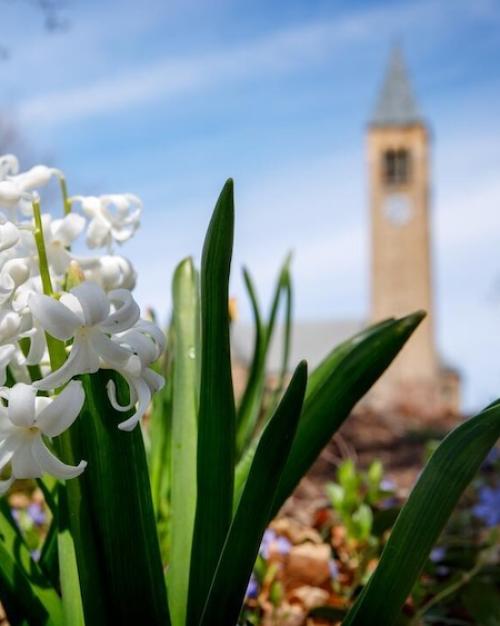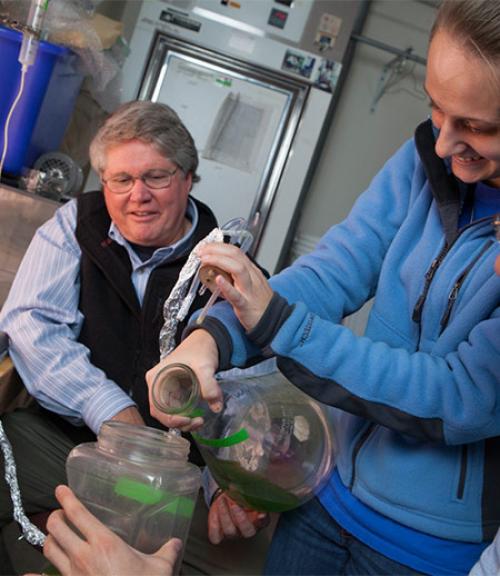A new environment and sustainability major in the College of Arts and Sciences and the College of Agriculture and Life Sciences was approved March 8 by the faculty senate and, pending approval by the New York State Education Department, will launch in fall 2018.
The cross-college major is a modified and broader version of the existing Environmental and Sustainability Sciences (ESS) major in CALS and has been expanded to include a humanities concentration, while retaining the existing social science and science concentrations. It will offer students additional ways to combine the study of physical and biological sciences with social science and humanities fields and explore the social, ethical, and public policy dimensions of environmental issues.
“We’re very excited to partner with CALS in this new major, which will prepare students to be the next generation of leaders in environment and sustainability and equip them with the interdisciplinary skills to address complex environmental issues like climate change,” said Gretchen Ritter, the Harold Tanner Dean of Arts and Sciences.
“CALS and Arts and Sciences are partnering to do what’s in the best interest of students in both colleges. Not only are students interested in environment and sustainability, but also there is a strong growing need for students who can understand environmental issues from different disciplinary vantage points,” said Kathryn J. Boor, the Ronald P. Lynch Dean of the College of Agriculture and Life Sciences.
As the joint A&S-CALS Committee on Interdisciplinary Curricula in Environmental Studies and Environmental Sciences, chaired by Associate Professor of Ecology and Evolutionary Biology Christine Goodale, pointed out in their report, the major is intended for students who are interested in understanding the crucial role the humanities, arts and social sciences play not just in producing solutions to environmental problems but in understanding how those problems arose, and sometimes in reconceptualizing them. For example, the committee noted that in discussing climate change, scientific models of sea-level rise are critical but so are the narratives people use to tell themselves about what a world with rising temperatures means; understanding ethical frameworks is as important to climate change policy as identifying renewable energy sources.
An extensive process of community engagement went into crafting the major, noted Max J. Pfeffer, senior associate dean of CALS, involving faculty from the humanities, the social sciences and the sciences, and students in both colleges. “We anticipate considerable student interest in the new major, and we’ve been extremely pleased with the number of faculty in diverse fields who have expressed interest in teaching for the major as well as advising students.”
Given the interdisciplinary focus of the major, team-taught classes with professors from different fields and colleges will be emphasized, particularly for the introductory and capstone courses, said Nelson Hairston, professor of ecology and evolutionary biology, who chaired the A&S-CALS committee for the second phase of the major’s development process.
The new major will help to consolidate Cornell’s great strengths in environmental sciences, social sciences, and humanities, which are dispersed across multiple departments, colleges, and majors, said Ted O’Donoghue, senior associate dean of A&S. “We expect it to enhance faculty collaboration in interdisciplinary teaching and research, as well as help the public recognize Cornell’s strengths in these areas,” he said.
This article also appeared in the Cornell Chronicle.




